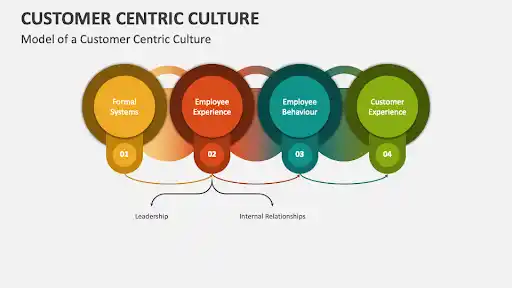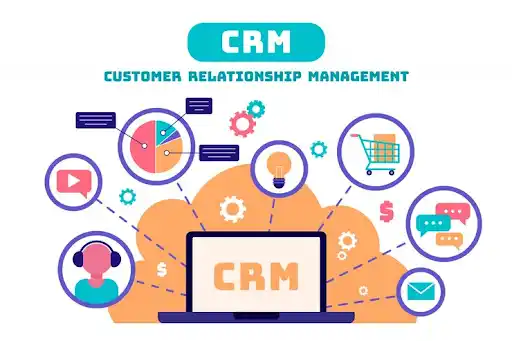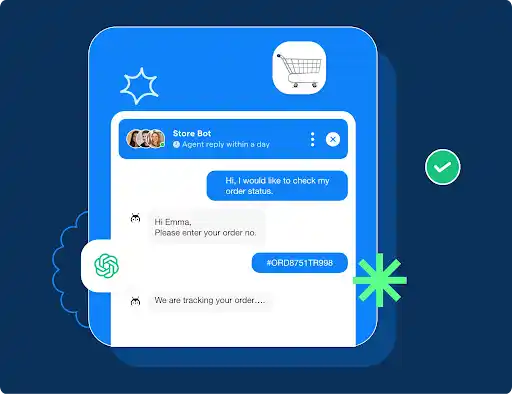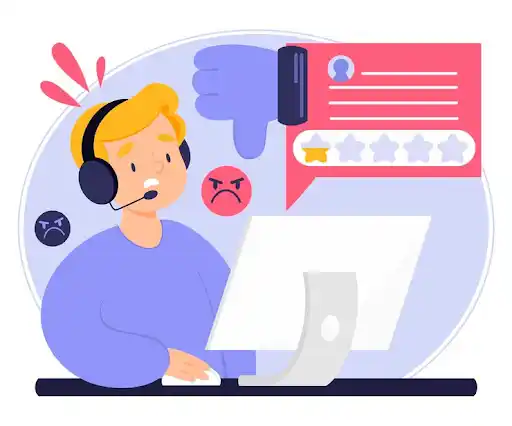Introduction
In today's digital age, ecommerce customer services are a game-changer. With endless online stores standing out requires more than great products.
Customers seek seamless, personalized experiences that make them feel valued. Providing star ecommerce customer service can turn casual shoppers into loyal advocates. It drives repeat sales and positive word-of-mouth.
This blog explores practical strategies to elevate your ecommerce customer service. It covers understanding customer needs and leveraging the latest communication tools. These insights will help you create memorable customer interactions, boosting satisfaction and loyalty.
Let's explore how to transform your ecommerce customer service and set your business apart.
Understanding Customer Needs
In ecommerce customer service, understanding customer needs is crucial for success.
By gathering feedback, businesses can analyze behavior and preferences. They can then provide personalized service. This will help them build strong customer relationships.
Research and Gather Customer Feedback

One of the first steps in understanding customer needs is to gather feedback.
You can use surveys, reviews, and customer interactions. Listening to customers can provide valuable insights into what works well and needs improvement. It also helps businesses to
- Identify trends
- Understand customer pain points
- Make informed decisions
- Provide better ecommerce customer support.
Analyze Customer Behavior and Preferences

Analyzing customer behavior and preferences is another important aspect of understanding customer needs.
Businesses can learn more about customer preferences by tracking browsing, purchases, and engagement.
Then, they can enhance products and services to match needs, boosting satisfaction.
Importance of Personalized Service
Personalized service plays a key role in understanding and meeting customer needs.
Ecommerce customer support personalizes the shopping experience based on individual preferences.
Businesses can create a more engaging and relevant interaction with their customers. This can lead to higher conversion rates and increased customer loyalty and satisfaction.
Effective Communication Channels
In the world of ecommerce customer service, having effective communication channels is crucial. It builds strong relationships with customers.
Here, we will explore some essential ecommerce customer support channels-
Live Chat Support

Live chat support lets customers connect quickly and efficiently with real-time agents. It is essential. Ecommerce chatbots provide quick answers and solve problems instantly.
They boost customer satisfaction, conversion rates, and audience trust.
Email Support
Email support is a popular choice for customers who prefer more formal and detailed communication. It lets customers to express their concerns.
They can provide feedback or seek help when it suits them. With email support, ecommerce businesses can track customer inquiries.
They can keep a record of communication and give personalized responses. You can use ecommerce chatbots to schedule bulk emails for customers.
Phone Support

Phone support is still vital. Some customers prefer talking to a rep. This helps with complex issues, sensitive topics, or emotional needs.
It also builds a personal connection and a positive brand image.
Self-Service Options
FAQs, knowledge bases, and ecommerce chatbots let customers find answers themselves. This cuts response times and makes service more efficient.
It also lets agents focus on harder tasks.
Social Media Support

Social media is key for support and engagement. Businesses use platforms like Facebook, Twitter, and Instagram to reach more people.
They also show they value transparency. Real-time interactions, sharing helpful info, and fostering brand loyalty are key benefits.
Building a Strong Customer Service Team
A strong team is crucial for great service. It involves hiring right, training, and letting employees make decisions. This approach meets customers' needs effectively.
Hiring the Right People

When hiring for your ecommerce customer service team, look for great communicators with empathy and problem-solving skills.
They should focus on customers. Experience in this field is good, but a positive attitude and a desire to learn are also key.
Training and Development
After forming your team, keep training them. This ensures they can handle customer issues.
Train them on product knowledge, company rules, communication, and solving conflicts. Regular sessions and exercises will improve their skills. They'll also stay updated on industry trends and technologies.
Empowering Employees to Make Decisions
Letting employees decide can swiftly solve issues and please customers. First, set guidelines and limits. Then, allow them to make decisions when needed.
This boosts their sense of ownership and responsibility. Also, it encourages them to solve problems and make decisions on their own. This approach lifts morale and engagement.
As a result, job satisfaction and retention rates increase.
Creating a Customer-Centric Culture

In the world of ecommerce customer service, the key to success is putting the customer first.
This means truly understanding their needs, wants, and preferences. By doing so, you can tailor your services to meet their expectations and create a positive experience.
Putting the Customer First
When someone reaches out for ecommerce customer support or assistance, it's important to respond promptly and effectively.
This demonstrates that you value their time and are committed to helping them resolve any issues they may have.
By putting the customer first, you can build trust and loyalty, leading to repeat business and positive word-of-mouth recommendations.
Encouraging Empathy and Understanding
Empathy plays a crucial role in ecommerce customer service. It involves putting yourself in the customer's shoes and understanding their emotions and concerns.
By showing empathy, you can create a more personal connection with the customer and make them feel heard and valued. This, in turn, can lead to improved satisfaction levels and increased customer loyalty.
Suggested Reading:
Sealing the Deal: How eCommerce Chatbot Boosts Conversions
Consistent Brand Voice and Tone
Maintaining a consistent brand voice and tone is essential in ecommerce customer service. This ensures that all interactions with customers are in line with your brand values and messaging.
Whether through email, ecommerce chatbots, or phone support, your tone should always reflect your brand's personality. Consistency helps build brand recognition and trust among customers.
Utilizing Technology and Tools
In the world of ecommerce customer service, technology plays a crucial role in enhancing ecommerce customer support.
Let's dive into the significance of CRM systems, helpdesk software, ecommerce chatbots, AI, and data analytics in improving ecommerce customer support.
CRM Systems:

Customer Relationship Management (CRM) systems are vital tools for managing and analyzing ecommerce customer support interactions.
They cover the entire ecommerce customer support journey. Ecommerce companies use these systems to track preferences, purchases, and communications.
This information helps customize interactions, predict needs, and ensure a smooth shopping experience.
Helpdesk Software:
Helpdesk software is key for managing ecommerce customer support. It helps with tickets and inquiries.
This support streamlines communication for online businesses. It also automates responses and highlights urgent issues.
With this software, agents quickly access customer data. This leads to faster solutions and happier customers.
Chatbots and AI:

Ecommerce chatbots use AI to offer instant support. They respond automatically. These chatbots are always on, can handle multiple queries, and give consistent answers.
They help track orders, address FAQs, and quickly solve basic issues. This boosts the online shopping experience.
Suggested Reading:
11 Best Ways eCommerce Chatbots Can Boost Lead Generation!
Data Analytics:
Data analytics plays a critical role in understanding customer behavior, preferences, and trends. Ecommerce companies analyze customer data.
This helps them find patterns and predict needs. They tailor marketing. Also, they measure satisfaction and service performance. This leads to better decisions and improved ecommerce customer service.
Handling Complaints and Returns

Complaints and returns are inevitable in ecommerce. How you handle them can make a big difference.
Addressing issues efficiently and empathetically can turn unhappy customers into loyal ones, enhancing your brand’s reputation and customer retention.
Efficient Returns Process:
When it comes to handling returns, simplicity is key. Make sure your ecommerce platform has a clear and easy-to-follow returns process in place. This includes providing customers with a clear return policy on your website, as well as offering pre-paid return labels for convenience.
By making the returns process hassle-free, you can ensure that customers are more likely to return to your store in the future.
Handling Complaints with Care:
Customer complaints are inevitable, but how you handle them can make all the difference.
When a customer reaches out with a complaint, make sure to respond promptly and professionally.
Listen to their concerns, empathize with their situation, and work towards finding a satisfactory solution.
Turning Negative Experiences into Positive Ones

Every negative experience is an opportunity to showcase exceptional ecommerce customer service.
Take the time to understand the root cause of the customer's dissatisfaction and take proactive steps to address it.
Offer compensation or discounts as a goodwill gesture, and follow up with the customer to ensure their issue has been fully resolved.
By going above and beyond to rectify a negative experience, you can not only keep that customer but also potentially turn them into a brand advocate.
Measuring and Improving Customer Service
AI chatbots ask customers for feedback after interactions through surveys or conversational prompts.
They collect and analyze this data to identify trends and areas for improvement, enabling continuous enhancement of service quality.
Customer Satisfaction Surveys
One effective way to gather feedback from customers about your ecommerce customer support is through customer satisfaction surveys.
These surveys can provide valuable insights into the experience customers have with your ecommerce platform.
By regularly conducting surveys, you can identify areas of improvement and address any issues customers may be facing.
Net Promoter Score (NPS)
Net Promoter Score (NPS) is a metric used to measure customer loyalty and satisfaction. It involves asking customers how likely they are to recommend your ecommerce platform to others on a scale of 0 to 10.
Based on their responses, customers are categorized into promoters, passives, or detractors. By calculating the NPS, you can gauge the satisfaction levels of your customers and track changes over time.
Analyzing Feedback and Implementing Changes

Once you have collected feedback through surveys and determined your NPS, it's essential to analyze this data and identify trends or patterns.
Pay attention to common complaints or areas where customers are dissatisfied. Use this information to make necessary changes and improvements to your ecommerce customer service practices.
Implementing changes based on feedback shows customers that you value their opinions and are committed to providing a better experience.
Building Customer Loyalty
Loyal customers are the backbone of any successful ecommerce business.
By focusing on strategies that build loyalty, you can encourage repeat business and create brand advocates who will support your growth.
Loyalty Programs:
Loyalty programs are a great way for ecommerce businesses to reward their regular customers.
These programs typically offer points or rewards for each purchase, encouraging customers to continue buying from the same store.
By implementing a loyalty program, businesses can strengthen their relationship with their customers and create a sense of exclusivity, making customers feel valued and appreciated.
Suggested Reading:
How can a Chatbot Improve E-Commerce Customer Experience
Personalized Offers and Discounts:
Personalized offers and discounts are another effective way to build customer loyalty.
By analyzing customer data and sales history, businesses can tailor special discounts and promotions to each customer.
This personalized approach makes customers feel special and appreciated, leading to increased loyalty and repeat purchases.
Engaging Customers Post-Purchase
Engaging customers post-purchase is crucial for building long-term relationships and loyalty.
After a customer makes a purchase, businesses can follow up with personalized thank-you emails, recommendations for related products, or exclusive offers for their next purchase.
Examples of Companies with Exceptional Customer Service
Explore how top companies like Zappos, Amazon, and Warby Parker excel in customer service, setting high standards for eCommerce customer satisfaction and loyalty through innovative practices and personalized interactions.
Zappos

Zappos, an online shoe and clothing retailer, is renowned for its exceptional ecommerce customer service.
They focus on customer satisfaction above all else, offering free shipping and returns, as well as a 24/7 customer service hotline.
Zappos has set a high standard for personalized customer interactions and speedy issue resolution.
Amazon
Amazon, the ecommerce giant, is known for its customer-centric approach.
They have invested heavily in ecommerce customer service technologies such as ecommerce chatbots and AI solutions to provide quick and efficient ecommerce customer support.
Amazon's focus on continuous improvement and innovation has earned them a loyal customer base.
Warby Parker

Warby Parker, a direct-to-consumer eyewear brand, offers a seamless online shopping experience backed by excellent ecommerce customer service.
They have a generous return policy and a dedicated team of ecommerce customer service agents who go above and beyond to assist customers.
Warby Parker's commitment to customer satisfaction has helped them build a strong brand reputation.
Transforming Ecommerce Customer Service with AI Chatbots

AI chatbots undoubtedly accomplish a wide variety of tasks for customer service. Here, we will learn about how AI chatbots perform some of those tasks:
- Answer FAQs: Answer frequently asked questions by training your ecommerce chatbot based on your industry and company's data.
- Live chat: Let your ecommerce chatbot handle customer queries and hand it over directly to an agent when things go out of the box.
- On-boarding your support team: With an ecommerce chatbot, you will be able to assign roles, manage responsibilities, and make automation a vital part of your customer service.
- 24/7 customer support: By integrating an ecommerce chatbot with your customer service, you can stay online forever to provide ecommerce customer support.
- Set fallback response: Ecommerce chatbots will let you tackle unexpected situations smartly. It will know when things are going out of its reach and will initiate human handover immediately.
- Abandon cart recovery: With an ecommerce chatbot, you can keep up with the customers who have abandoned their shopping carts by engaging them on chat regularly.
- Order tracking: The ecommerce chatbot can track order status using the data input provided to it and provide real-time updates to your customers about their orders with transparency.
Conclusion
Providing excellent ecommerce customer service is vital for success. It boosts loyalty, satisfaction, and growth.
Strategies like personalized care, quick responses, and problem-solving stand out. Adding a human touch, easy navigation, and a friendly interface is key. Regularly seeking feedback, analyzing data, and improving based on insights are crucial.
AI chatbots are transforming ecommerce customer service by offering immediate, personalized, and efficient support. Businesses that integrate these advanced technologies not only enhance customer satisfaction but also gain a competitive edge in the digital marketplace.
Embracing AI chatbots is not just about automation; it's about delivering superior customer experiences that drive growth and loyalty in the ecommerce industry.
By focusing on customer satisfaction, businesses can build lasting relationships, increase sales, and enhance their reputation.
Suggested Reading:
7 Ways Ecommerce Automation Boosts Sales
Frequently Asked Questions (FAQs)
What are the key elements of exceptional ecommerce customer service?
Key elements include prompt response times, personalized interactions, easy returns and exchanges, clear communication, and providing many ecommerce customer support channels such as ecommerce chatbots, email, and phone support.
How can live chat improve ecommerce customer service?
Live chat offers real-time assistance, reduces wait times, and provides immediate solutions to customer issues, enhancing overall satisfaction and boosting conversion rates.
Why is personalization important in ecommerce customer service?
Personalization makes customers feel valued, leading to increased loyalty and repeat business. It involves tailoring recommendations, offers, and communications based on individual preferences and behaviors.
What role does a return policy play in ecommerce customer service?
A clear and hassle-free return policy builds trust and confidence in your brand, encouraging customers to make purchases knowing they can easily return or exchange items if needed.
How can social media be used for ecommerce customer service?
Social media allows for quick responses to customer inquiries and complaints, showcases your brand's personality, and provides an additional platform for engagement and ecommerce customer support.
What technologies enhance ecommerce customer service?
Technologies like AI ecommerce chatbots, CRM systems, and automated email responses streamline ecommerce customer support processes, provide instant assistance, and maintain comprehensive customer records for better service management.


